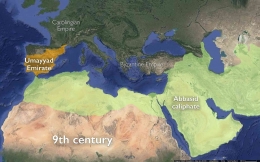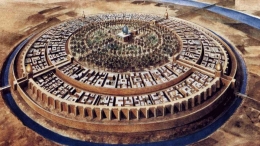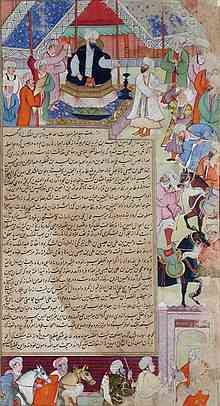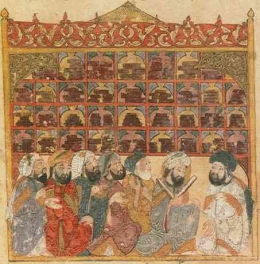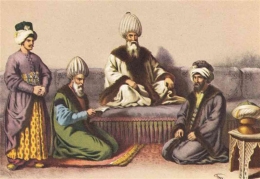There were no restrictions on the translation of foreign works on the basic sciences, Greek philosophy and even mathematics, astronomy, physics, geometry, optics, music and medicine from Syriac, Persian and Indian languages. This cross-religious and cultural academic collaboration had proven to produce a very rapid scientific process and dynamics so that in a relatively short time Islamic civilization progressed. And this is also proof that Islam and its civilization are open and can work together synergistically with anyone.
Apart from the rapid progress in this field of science is determined by two

- The occurrence of assimilation between the Arabs and other nations who first experienced developments in the field of science and philosophy. At this time there were many non-Arabs who took part in intellectual activities or even converted to Islam. These nations exert a strong influence on science and civilization. Persian influence which has influence in government also contributed to the development of science, philosophy and literature. Indian influence is striking in medicine, mathematics and astronomy. Also Greek influence through translations in many fields of science, especially philosophy.
- The translation movement instructed by the leader took place in three phases. The first phase, in this phase there were many works in the field of astronomy and logic that are translated, this period occurs during the leadership of al-Mansur to Hrn al-Rashd. The second phase, in this phase there were many works in the fields of philosophy and medicine, this phase occurred during al-Ma'mun's leadership. The third phase, marked by the existence of paper making and the object of translation was increasingly widespread.
The implications of this translation movement for the development of Islamic civilization and science


- The birth of four fiqh imams who are very influential fiqh experts in the Islamic world, their schools of fiqh are the most widespread until now, namely, Imam Abu hanifah (150 H), Imam Malik (179 H), Imam Shafi (204 H) . and Imam Ahmad bin Hambal (241 H).
- The birth of the science of interpretation of the Qur'an and Hadith. In the previous period there was no interpretation of the Qur'an and Hadith, nor were some of them organized and structured. In the past, interpretation was used only for some verses for a specific purpose or because of disagreements about its meaning.
- The birth of great scientists such as Al-Khwarizmi, the inventor of algebra and zero, Ar-Razi, an expert in the field of medicine, who succeeded in discovering measles and smallpox, and in the field of philosophy, the famous scientist, Al Kindi, was born.
- The Abbasids succeeded in translating Greek, Persian, Syrian and Indian books whose knowledge can still be felt today.











